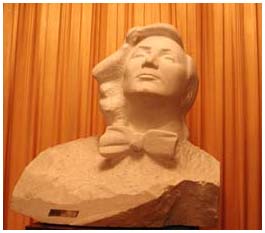
The Mukhtar Ashrafi Museum was founded in honour of the prominent Uzbek composer, one of the creators of national operatic art. It is located in the flat where the composer has lived during the last period of his life since 1969 till 1975.

|
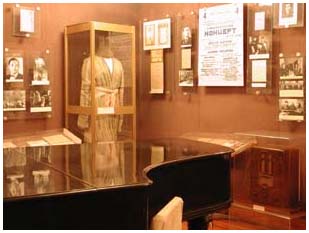
|
The interior recreating the atmosphere of the life of the composer is preserved in the memorial study. The rest halls of the museum contain an exposition describing his life and creative path. There are stuffs embracing the period since the beginning of his lifetime till 1945 in the first hall of the museum. Mukhtar Ashrafi was born on June 11, 1912 in Bukhara in the family of the national singer and dutarist Ashrafjan Hafiz.
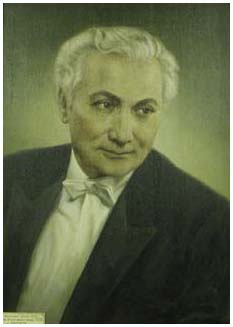
|
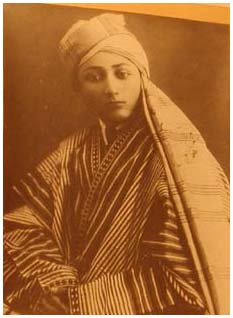
|
In the exposition there are is a diarama of the house where he grew up. His father was his first tutor and at the age of seven Mukhtar could improvise playing the dutar. Since 1924 till 1929 Ashrafi has been studying at School of Oriental Music in Bukhara Educational Institute at the same time. The years of studies at Samarkand Institute of Music and Choreography under the guidance of a famous musician Nickolai Mironov. In 1930 Mukhtar Ashrafi together with his co students Talibjan Sadykov and Sharif Ramazanov created the first symphonic composition in the Uzbek music - the marsh "Sadrash". Since 1934 till 1936 Ashrafi has been studying in operatic studio attached to Moscow Conservatoire and in 1937 he became an artistic leader and a conductor-in-chief of the Uzbek Musical Theatre. The stuffs devoted to the creation of the first Uzbek opera "Buran" , which Ashrafi composed together with his teacher at conservatoire a composer Vasilenko to libretto by Kamil Yashen.
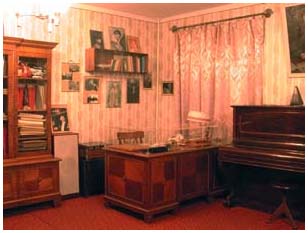
|
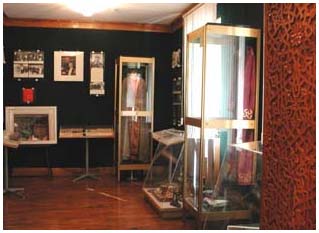
|
There are also noted manuscripts, photographs and the diarama of the scenery to the 4-th act of the opera. The first night took place on June 11, 1939. This very day is considered to be the birthday of Uzbek opera. In this hall there are also stuffs about creative activity of the composer and conductor during World War II - the scores of his two symphonies of heroic trend, photographs of musical performance played in the war time, as well as the first tall-coat and conductor's batons of Ashrafi.
The exhibits of the second hall cover Ashrafi's activities in the second part of the 40s and 50s - his external studies at Leningrad Conservatoire learning the profession of a symphonic conductor, his being on tours as a symphonic conductor in the towns of Pribaltic Territory, the Caucasus, the Ukraine and the republics of Middle Asia, his creative contacts with the outstanding composers of his time - Dmitry Shostakovich, Aram Khachaturyan and others.
The exhibits of the third hall tell about such important works by the composer as the opera "Dilorom" (1958), created to the plot of the poem by Alisher Navoi "Seven planets" and "The Poet's Heart" (1962), recreating the fate of the prominent Uzbek poet Furkat, as well as his poem-rhapsody "Timur Malik" and the ballet "The Amulet of Love" soaked with Hindu musical art.
The items of the 4-th hall are dedicated to the last important compositions by Ashrafi - the ballet "Timur Malik" and the oratorio "The legend about Rustam". The fifth hall stuffs tell about his pedagogical and social activities.
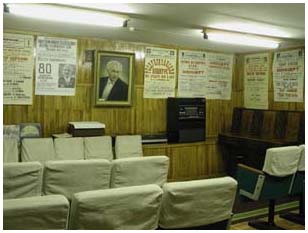
In the basement accommodation there is a musical saloon where chamber concerts, listening to the new compositions and exhibitions are held. The museum received its first visitors on June 11, 1982 on the very day of the poet's 70-th anniversary. The keeper-in-chief and the executive curator of the museum is Gulsum Rakhmedovna Khamraeva.
Main page

|

|